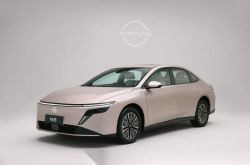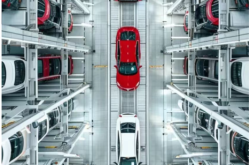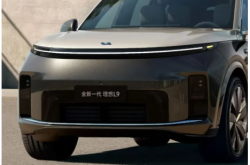Don't urge Chinese automakers to engage in internal competition anymore
![]() 08/12 2024
08/12 2024
![]() 646
646
Source | Bohu Finance (bohuFN)
In the context of Chinese internet, the term "internal competition" (neijuan) carries a lot of ideological weight.
For example, it's well-known that China's automotive market is currently the most competitive globally, with no rival. How competitive? A B-segment plug-in hybrid electric vehicle boasting the world's highest thermal efficiency engine, longest driving range, and lowest fuel consumption per hundred kilometers, priced at just 100,000 yuan. Consumers, of course, love it, and the price war has forced even premium brands like BBA to join in, with automakers offering discounts to sell their cars.
But everyone understands the danger of "draining the pond to catch all the fish." Is this kind of internal competition, which prevents automakers from making a profit, truly beneficial for both consumers and automakers?
The debate over "internal competition" has plunged the domestic auto industry into an unprecedented controversy. Leaders like Yang Xueliang, Senior Vice President of Geely Holding Group, and Zeng Qinghong, Chairman of GAC Group, have formed groups to voice their opinions.
Yang Xueliang criticized internal competition, saying, "The well-known issue of non-compliant atmospheric pressure fuel tanks and emissions in the industry, I believe, will have a fair, just, and open legal conclusion, and the truth will eventually come to light."
Zeng Qinghong added, "We should have a broad perspective and a long-term strategic vision, rather than focusing solely on short-term competition."
Now it's Wei Jianjun's turn. On August 7th, Wei Jianjun, Chairman of Great Wall Motor, spoke candidly in an interview with central media, saying:
"Some executives in the industry are advocating for unfair, dishonest internal competition."
"I will definitely defend the order of the automotive industry."",""We can conduct an audit of the entire automotive industry to identify any issues, and Great Wall Motor will cover the audit costs."
Frankly speaking, Wei Jianjun, Yang Xueliang, and Zeng Qinghong's statements are not popular among netizens. Being criticized or even subjected to online harassment is already a common occurrence. However, as we strive to overtake in the automotive industry, it's crucial to ensure that our path is solid.
Many industry insiders and car owners may experience conflicting emotions: pride in the rise of the domestic auto industry, coupled with concerns about the survival of automakers.
Over the past few years, several automakers have filed for bankruptcy, including WM Motor, Byton, Enovate, and Aichi. Those still in the game aren't faring much better. Take NIO, XPeng, and Leapmotor, for example. According to their respective annual reports, they lost 20.72 billion yuan, 10.38 billion yuan, and 4.22 billion yuan, respectively, in fiscal year 2023. NIO and XPeng's net losses expanded by 43.5% and 13.6%, respectively, compared to the previous fiscal year.
Generally speaking, a healthy gross margin threshold in the industry is around 20%. However, NIO, XPeng, and Leapmotor's gross margins in 2023 were 5.5%, 1.5%, and 0.5%, respectively.
Li Xiang, Chairman and CEO of Lixiang ONE, previously stated in an interview with the 21st Century Business Herald that competition in the new energy vehicle industry is intense, with even leading companies engaging in price wars, which is unprecedented in other industries.
This issue isn't exclusive to new players. According to the National Bureau of Statistics, the profitability of the automotive manufacturing industry in the first half of this year remained at 5.0%, the same as in 2023, failing to surpass the average profitability of the entire industrial sector.
This suggests that the entire industry's operating conditions are not optimistic.
Excessive price wars harm not only companies but also consumers. One typical example is when new car owners encounter official price reductions of tens of thousands of yuan just days after purchasing their vehicles. This has become common in recent years.
Furthermore, simplistic price wars erode vehicle quality. Neither traditional nor new energy vehicles can compensate for manufacturing cost losses through software fees like internet companies. Selling cars is their sole source of profit. Under the pressure of price wars, manufacturers inevitably pass the burden on to suppliers. A second-tier supplier revealed that continuous pressure from manufacturers has led to more significant quality fluctuations than before.
This is why Wei Jianjun doesn't believe that cost-cutting alone can sustain endless price wars. "Great Wall's supply chain is extensive and vertical. Our costs are lower than anyone else's. If Great Wall can't make money, no one else can either," he said.
Returning to the essence of automakers. Whether providing excellent products to customers or stabilizing employment, sustained profitability is essential. Simplistic price wars may attract attention in the short term, but decisions lacking a solid foundation are short-sighted.
From this perspective, Wei Jianjun's recently criticized statements make sense:
"When internal competition pushes costs below their threshold, what value does sales volume have if quality isn't ranked as well?"
Price wars are a marketing strategy. Whether attracting customers through pricing or creating buzz with clever phrasing, the key lies in the legitimacy of the approach. The industry has formed a larger consensus and action on this matter than anticipated.
Li Yunfei, General Manager of BYD's Brand and Public Relations Department, once likened price wars to playing cards. He said that playing cards requires self-awareness, and one should only follow suit if they can afford it. Getting angry or upsetting the table is unnecessary.
Interestingly, this metaphor has sequels. For example, Li Ruifeng of Great Wall said, "If someone cheats at the card table, you must stand up, bang the table, or even turn it over." Yang Xueliang of Geely echoed this sentiment, stating, "We hope players abide by the rules. If cheaters are caught, they should willingly accept punishment without demanding that honest players leave the table in anger."
The industry has suffered from malicious internal competition for a long time. Take the infamous Ideal MEGA smear campaign as an example. After the Ideal MEGA's launch, the internet was flooded with malicious Photoshopped images featuring the words "mourning" and "new energy hearse" on the car's body. Now, multiple automakers, including Great Wall, have offered rewards for information on such smear campaigns.
However, the most shocking incident within the industry is the "fuel tank gate." In May 2023, Great Wall Motor announced that it had submitted a report to the Ministry of Ecology and Environment, the State Administration for Market Regulation, and the Ministry of Industry and Information Technology, accusing BYD's Qin PLUS DM-i and Song PLUS DM-i models of using atmospheric pressure fuel tanks, which allegedly fail to meet emission standards.
The core issue surrounding this incident is unfair competition.
To comply with China's National VI-B emission standards implemented in July 2023, hybrid vehicles typically adopt high-pressure fuel tanks, a path followed by domestic manufacturers like Lixiang ONE. While high-pressure fuel tanks are superior, their only drawback is their higher cost—around 1000 yuan more expensive than atmospheric pressure tanks, representing a cost increase of over 50%, according to Jiemian News.
Although BYD later announced that its plug-in hybrid technology met emission standards, no official conclusion has been reached to date.
The "fuel tank gate" was compared to China's version of Volkswagen's "dieselgate," which cost the German automaker over 32 billion euros (as of 2022) in fines, compensation, and settlements.
This incident highlights another crucial aspect of the "internal competition" debate—fair competition. As Li Shufu put it, "If marketization is high, laws are sound, and enforcement is strict, transparent and fair competition is a good thing; otherwise, it's bad."
It's undeniable that competition in the automotive industry should return to the right track, preventing inferior products from displacing superior ones. The focus should extend beyond price to technology and research and development, restoring a virtuous market cycle.
Wei Jianjun even proposed launching an audit storm within the industry, starting with Great Wall and auditing every company to identify issues, with Great Wall covering the audit costs.
Mocking joint venture automakers, especially their electric vehicles, has become a political correctness on Chinese internet. It's undeniable that foreign automakers have been slow to react to the electrification trend, with outdated software technology and long iteration cycles. Domestic players, battle-hardened in the domestic market, offer better details and configurations. An obvious example is that with a budget of 250,000 yuan, one can now afford a vehicle previously unimaginable.
However, another voice is spreading on social media: hostility towards foreign and joint venture automakers, not just in vehicles but also components or other tech companies, with some even advocating for their expulsion.
In reality, the foreign automakers we once mocked—Hyundai and Toyota—are doing well. In Q1 2024, Hyundai reported sales of 66.87 trillion Korean won and operating profit of 6.98 trillion Korean won, surpassing Volkswagen Group's operating profit for the first time. Toyota's revenue increased by 14% year-on-year to 11.07 trillion yen, with operating profit rising 77% to 1.11 trillion yen.
Meanwhile, our automakers compete fiercely in every aspect, resulting in declining gross margins, extended profitability cycles, and survival projections measured in years.
As Wei Jianjun stated in the interview, "China's automotive future doesn't lie in doing everything but in global resource complementarity. No company can succeed without the global market. Learning from established automakers helps us better compete and surpass globally."
Take Toyota as an example. Its entry into the North American and Southeast Asian markets wasn't smooth sailing. To better localize, Toyota chose to establish joint ventures with local companies, accumulating production and compliance experience. In Southeast Asia, after establishing joint ventures, Toyota rapidly increased its market share by nurturing high-quality dealers and introducing Toyota Production System (TPS) to accelerate localization.
The Chinese automotive industry stands at a crucial juncture with sufficient technology, talent, and excellent products. However, vicious internal competition in the domestic market hinders automakers' growth. Moreover, as we venture into the global arena, we must adopt an apprentice mindset to learn from resource complementarity.
Wei Jianjun believes himself fortunate to be in a good era with a fulfilling career. He cherishes China's reform and opening-up and feels a responsibility to develop and uphold the industry with a grand vision.
Both consumers and automakers must recognize the need to return to common sense and establish industry norms with sufficient consensus. We should avoid damaging the industry, as Bosch executives have warned, by competing globally in destructive ways.
*The cover image and accompanying illustrations belong to their respective copyright holders. If the copyright holders believe their work is inappropriate for public viewing or should not be used free of charge, please contact us promptly, and we will make immediate corrections.







